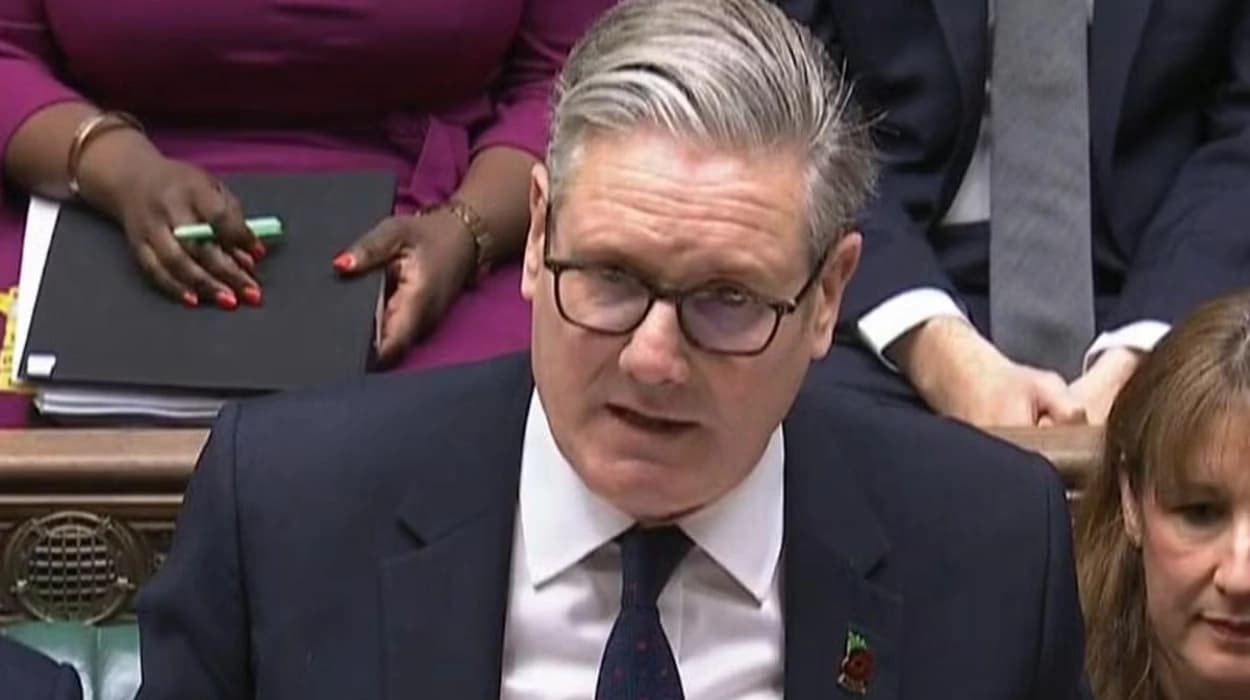Keir Starmer declined to confirm Labour’s manifesto pledge
not to raise VAT, income tax, warning a bleak economic outlook may force a
Budget shift.
At the November 26 announcement, the prime minister attempted to hold the previous Tory government accountable for lower-than-expected productivity projections from the Office for Budget Responsibility (OBR) by stating that the government will "lay out our plans."
He has stated earlier that the promise Labour made to voters prior to the general election in 2024 "stands," but he did not reiterate it in the Commons, and his press secretary refrained from using the same term.
In order to force more earners to pay income tax, Sir Keir also declined to rule out prolonging the freeze on the personal tax allowance threshold.
His comments may increase the likelihood that Rachel Reeves'budget would include additional significant tax increases as she works to bridge a multibillion-pound deficit in her plans.
During Wednesday's Prime Minister's Questions, Conservative leader Kemi Badenoch questioned Sir Keir on his reluctance to rule out raising some taxes on working people, with the question,
"What's changed in the past four months?"
No prime minister or chancellor would ever lay out their ideas ahead of time, the Labour leader said.
He continued:
“I can say this, Mr Speaker, because the figures on the productivity review that’s being undertaken, this is a judgment on their record in office.
Those figures are now coming through, and they confirm that the Tories did even more damage to the economy than we previously thought.
We will turn that around. We’ve already delivered the fastest growth in the G7 in the first half of this year. Five interest rate cuts in a row, trade deals with the US, EU and India.
They broke the economy. We’re fixing it.”
He noted that the freeze was introduced by the Conservatives. It is due to end in April 2028.
Mrs Badenoch said:
“If you work, they tax you more. If you save, they tax you more. If you buy a home, they tax you more. None of these taxes were in the manifesto, which he had four years to prepare.
He is raising taxes because he is too weak to control spending. He’s blaming us. He’s blaming the OBR (Office for Budget Responsibility). Last week, they were blaming Brexit.”
Earlier this month, the Institute for Fiscal Studies (IFS) issued a warning, stating that in order to restore the £10 billion of headroom she left herself against her debt targets in the spring, Ms. Reeves may have to find £22 billion in tax increases or spending cutbacks.
Higher borrowing costs, more persistent inflation, slower growth, and spending promises like partially reversing the winter fuel payment cut and easing welfare cut plans are all contributing factors to that disparity.
Ms. Reeves is hoping that a small improvement in some growth projections and better-than-expected inflation data would help reduce the strain.
Which revenue measures could avoid raising income tax?
Governments can increase profit by closing commercial duty
immunity and particular income duty loopholes, harmonizing duty treatment
across income types, and lowering thresholds in duty classes to expand
the duty base.
Raising excise levies on products like cigarettes, alcohol, and particulars with negative health or environmental impacts can induce significant profit without directly impacting income duty rates.
Scaling back duty immunity and concessions in sectors similar to energy, medicinals, and essential food particulars can increase government earnings mainly. Streamlining duty administration, digitizing duty systems, and closing collection gaps can bring further taxpayers into the net and reduce elusion.
